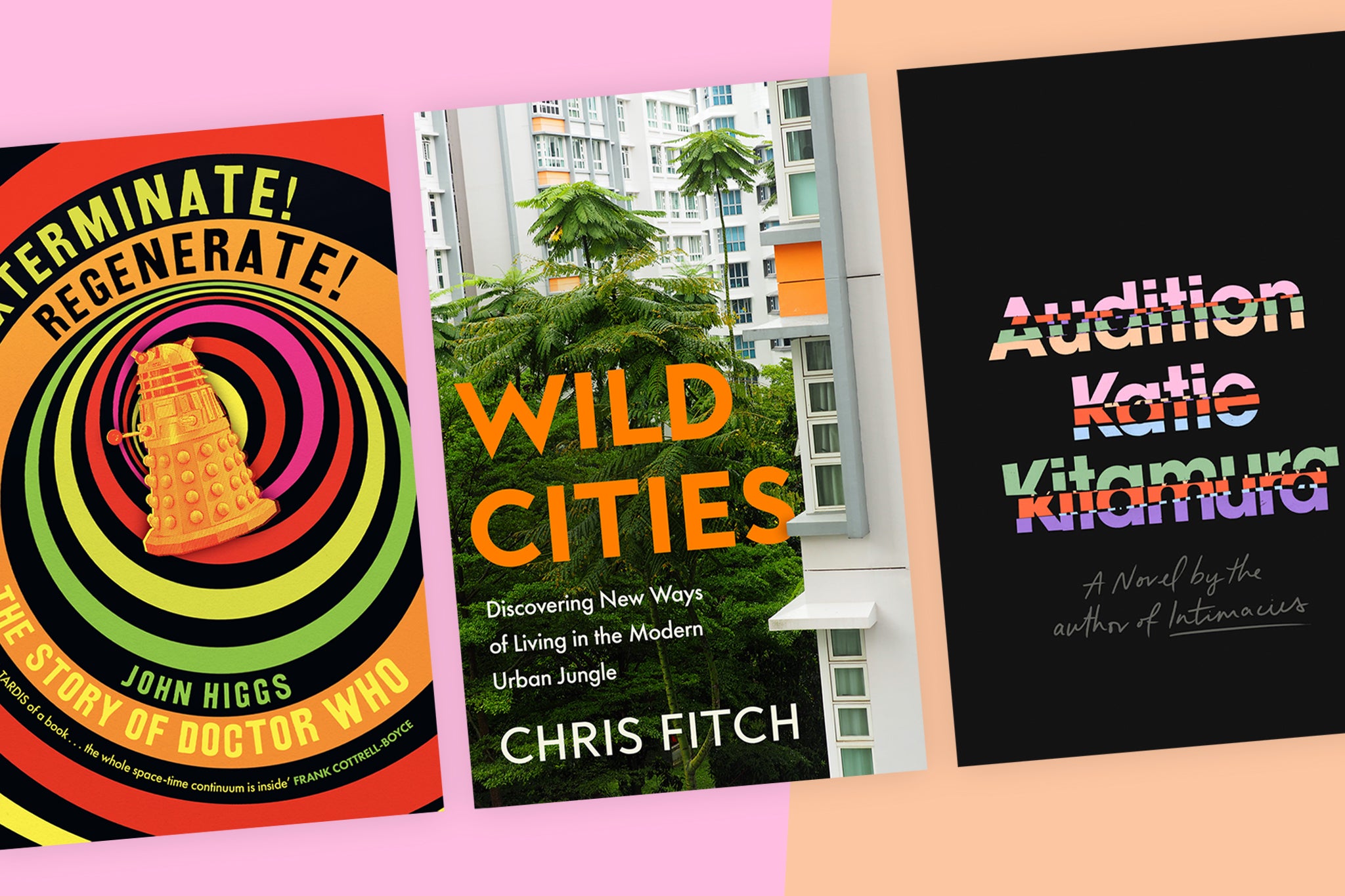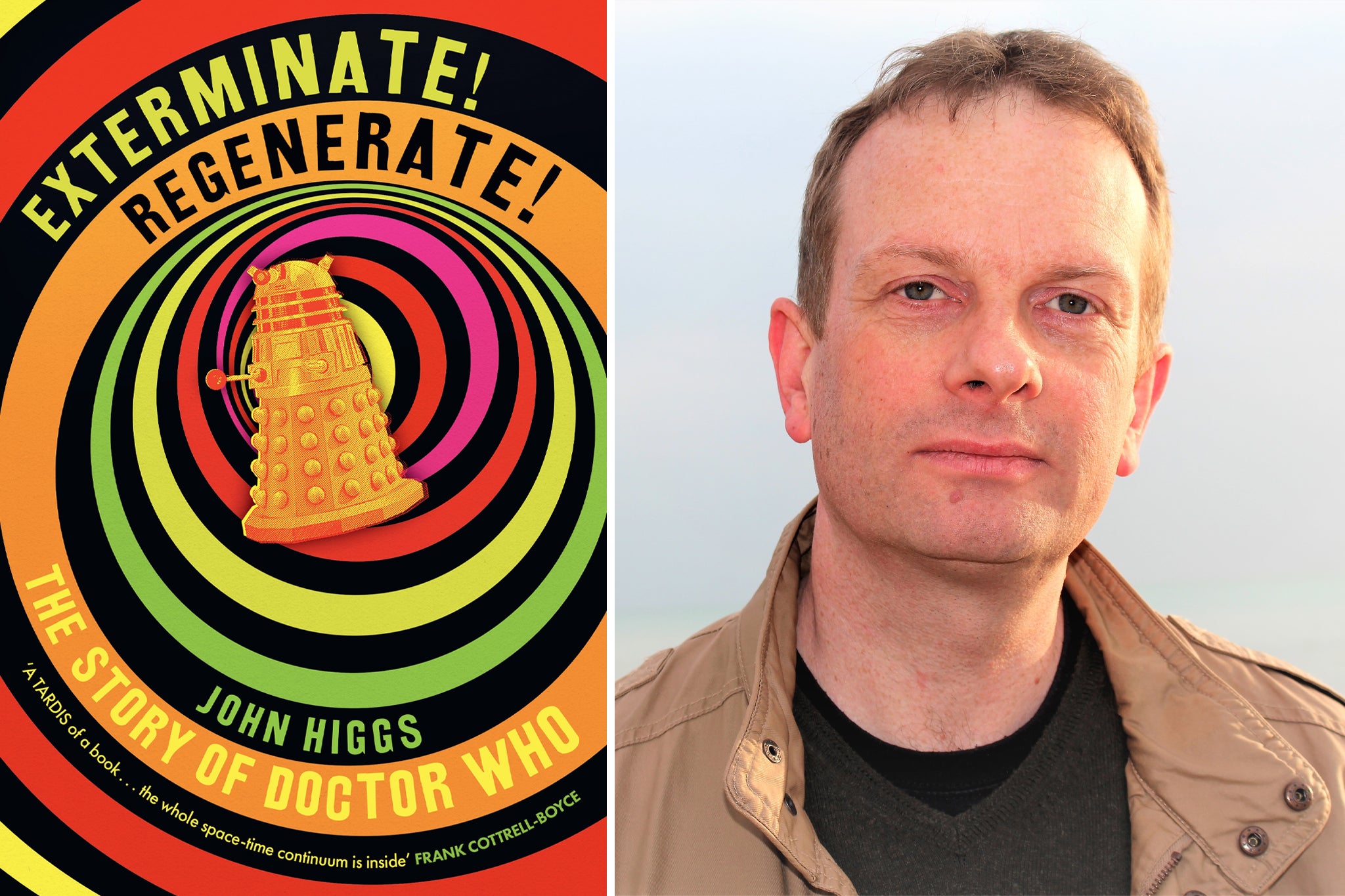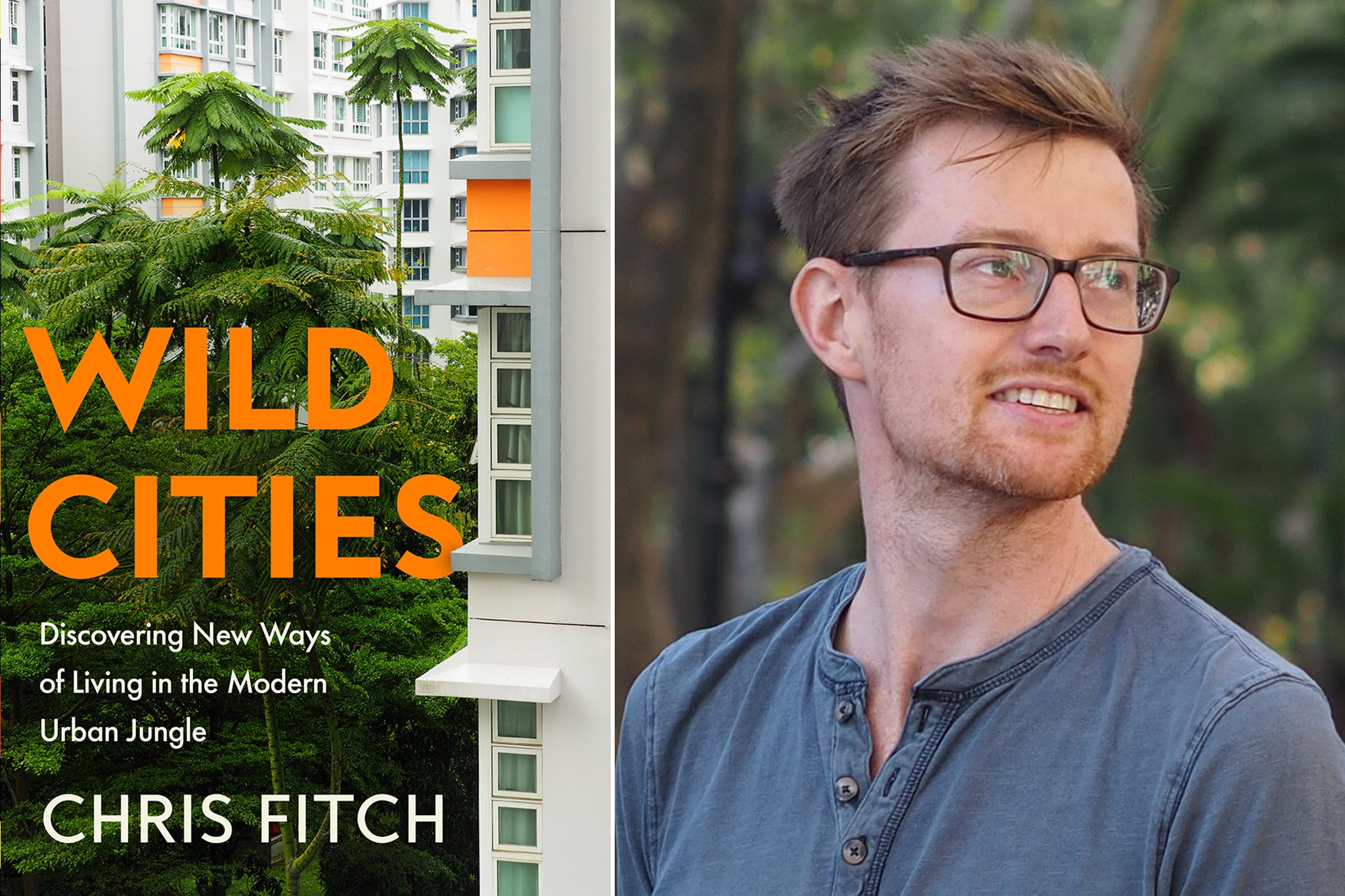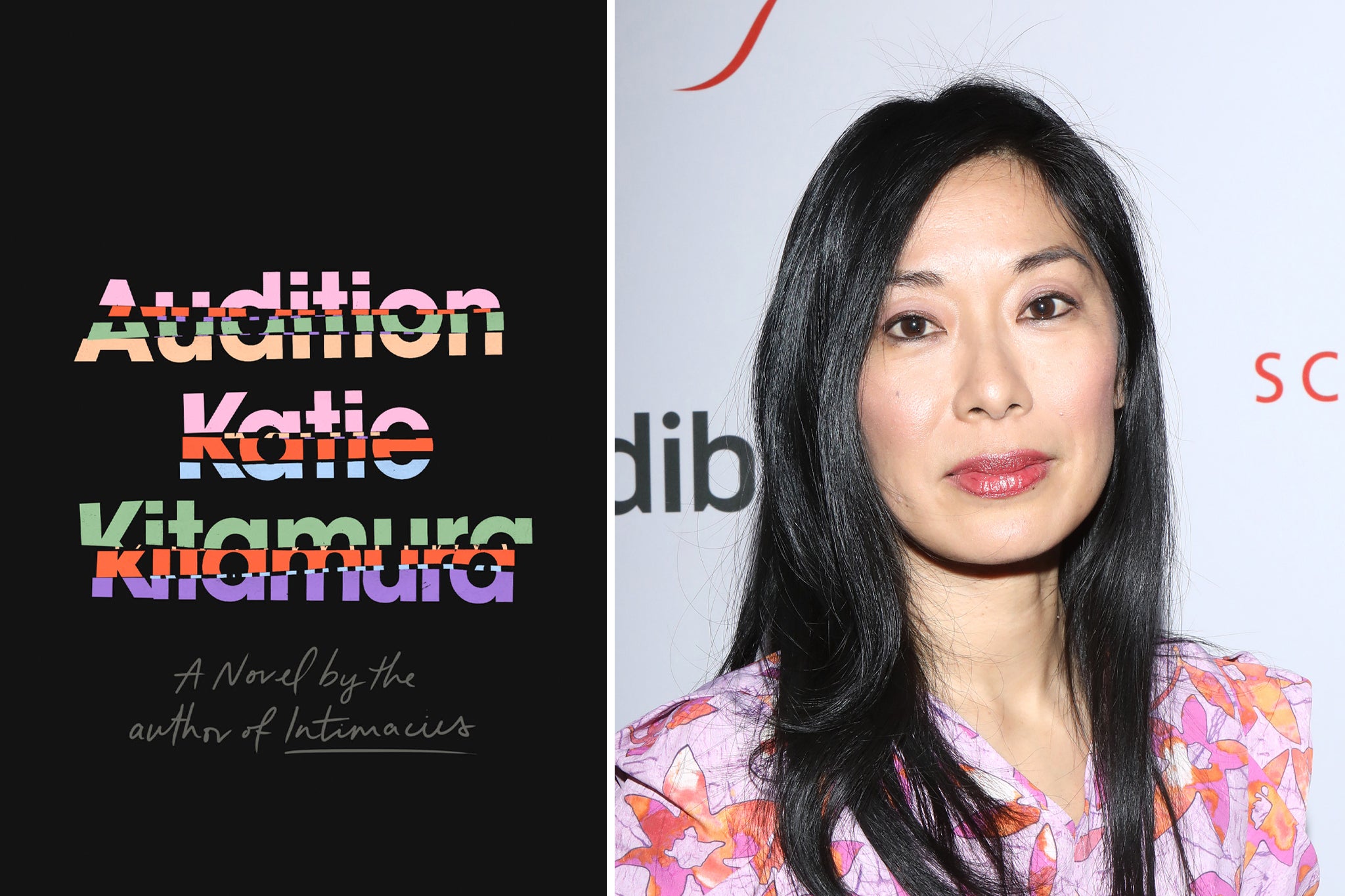Books of the month: What to read this April from a surprisingly candid Doctor Who biography to five-star fiction
Martin Chilton shares his April reading highlights


Divisive debates about “cancel culture” are hard to avoid these days, with most confrontations offering scant evidence of rigorous thinking. Two books in April deal with this controversial topic in different ways. In Discriminations: Making Peace in the Culture Wars (Oneworld), philosopher AC Grayling puts forward an astute guide to why this messy battle ground matters; while Deborah Frances-White, author of The Guilty Feminist, tackles the same thorny, volatile issues with wit and insight in Six Conversations We’re Scared to Have (Virago).
Two other “meaty” social history studies out this month have interesting things to say about race and class. They are Lanre Bakare’s We Were There: How Black Culture, Resistance and Community Shaped Modern Britain (Bodley Head) and Joel Budd’s Underdogs: The Truth About Britain’s White Working Class (Picador). Both books are packed with revealing content.
Finally, an ardent recommendation for Alice Vincent’s Hark: How Women Listen (Canongate). Hark offers a heartfelt, powerful exploration of the importance of sound and how it lands for women. The book takes the reader on a moving journey through Vincent’s testing times as a young mother and the role music and sensory experiences play in helping forge an identity. It is a book whose themes will surely echo with many readers.
My picks for fiction, non-fiction and memoir of the month are reviewed in full below.
Biography of the month: Exterminate/Regenerate: The Story of Doctor Who by John Higgs
★★★★★

As a child in the 1970s, I regularly watched Doctor Who, a character who has been on our screens since November 1963. I enjoyed the Tom Baker years, although I was never an ardent fan, and I think that makes it easier to read Exterminate/Regenerate: The Story of Doctor Who. John Higgs’s dispassionate, candid book is described by his publishers as “the first biography of the infamous Time Lord”.
A memo from 1963 described the character of the Doctor as “bewildered… garbled… somewhat pathetic”, which could stand as an unwelcome epitaph for William Hartnell, the first man to play the Doctor. Hartnell was a bad-tempered, homophobic, heavy-drinking bigot. Going by the book, he seems the perfect symbol for the snobby BBC of that era, an organisation that tolerated racist and predatory behaviour. Doctor Who was rife with sexism from the start. The founding producer was Verity Lambert. “Verity had enormous boobs and once, by mistake, I called her ‘Very-titty’ to her face,” admitted the programme’s director Richard Martin.
Higgs does a good job dissecting the 14 main Time Lords since 1963 – from Hartnell to Ncuti Gatwa – and there are entertaining stories about the actors involved, especially the volatile Baker, sex addict Patrick Troughton, the wild Sylvester McCoy and the principled Christopher Eccleston.
John Pertwee, who played the Doctor in the early 1970s and who was known for his velvet smoking jackets and frilly shirts, once slapped his onscreen assistant Sarah Jane Smith across the face when she dared to mock his propensity for telling “tall tales” about his work in naval intelligence. Other young female assistants faced similar appalling misogyny. They were usually just known as “the girl”. Barry Letts, a producer, admitted that cynically (and creepily), these young girls were just there as “something for the dads”. “It was not unusual for entire seasons of Doctor Who to be made by an entirely male team of writers, producers and directors,” Higgs writes.
The book is crammed with fascinating nuggets about fictional Doctor Who villains, too – the Daleks were intended to be seen as “space Nazis” – although some of the most monstrous behaviour came from the show’s fevered, factional fans. The diehard enthusiasts were disliked by most of the production staff, who called them “barkers” or “the ming-mongs”. Colin Baker, hated for his multicoloured coat, came in for particularly cruel treatment from some hardcore fans. A magazine produced by the Merseyside sect of the Doctor Who Appreciation Society went so far as to mock the death of Baker’s baby son Jack from sudden infant death syndrome.
Higgs takes us all the way through to the 21st-century Doctor Whos, in an era helmed by Russell T Davies and Steven Moffat, among others. Jodie Whittaker broke ground as the first female Doctor. Blackface and yellowface actors are gone. The current Doctor, Gatwa, was born in Rwanda during its civil war of the 1990s. The new progressive Doctor Who has antagonised Nigel Farage, who tellingly described it as a programme “I used to love, but they’ve completely ruined”.
Exterminate/Regenerate is a cracking read about a character Higgs calls “the British folk hero of the television age”. Doctor Who may be a hero to fans, but non-obsessives will find little comfort in this sharp-eyed account of an iconic British show forged in a toxic and abusive workplace.
‘Exterminate/Regenerate: The Story of Doctor Who’ by John Higgs is published by W&N on 10 April, £25
Non-fiction book of the month: Wild Cities: Discovering New Ways of Living in the Modern Urban Jungle by Chris Fitch
★★★★★

Around 55 per cent of humans now live in urban environments. This figure is expected to rise to more than 66 per cent by 2050. In Wild Cities: Discovering New Ways of Living in the Modern Urban Jungle, Chris Fitch looks at what pioneering cities around the world are doing to fight a seemingly losing battle against vanishing nature.
The book covers 12 cities – Tokyo, Medellín, Singapore, Tallinn, Wellington, Nairobi, Sydney, Munich, Barcelona, Copenhagen, Flagstaff and Paris – and uses surveys, data analysis, interviews, anecdotes, urban planning studies and personal observation to build an utterly compelling account of people working to protect a connection to the natural world for urban residents.
Fitch does not sugarcoat the problems. He writes at length about local insect populations in Europe declining by more than three-quarters in the past 30 years – something he calls “an invertebrate annihilation” – and the ways in which humans are wrecking the marine ecosystem. Whalers and fishermen are doing more damage than climate change. He looks at the issues facing urban dwellers, including physical inactivity, light pollution, heat retention in cities and the unsustainable and destructive habit of car commuting.
The benefits of nature are clear – time among trees boosts immune systems, scenic views aid medical recoveries, etcetera, etcetera – and Fitch uses 12 global cities (and London in the epilogue) to highlight remarkable achievements by progressive, determined people. We can all take heart from urban foragers, from the brains behind the biodiverse forests of Tokyo, from the way that vertical greening is helping in Singapore, and from the fact that Wellington’s bird sanctuaries are reviving once-doomed birds in New Zealand. Perhaps the most heartening chapter is on the Colombian city Medellín: a place once despoiled by the lawless and murderous activities of Pablo Escobar has been reclaimed and made green.
Fitch explains how the problems of urban expansion continue even after death. Paris, with limited burial plots, has seen a steep rise in “tree burials”. Alternatively, if you are cremated, you can now even have your remains turned into a vinyl record.
An engaging tone enlivens a book packed with surprising information, including about the rise of fatal urban bear attacks in Japan. Wild Cities is a splendid, uplifting book that is as entertaining as it is enlightening.
‘Wild Cities: Discovering New Ways of Living in the Modern Urban Jungle’ by Chris Fitch is published by William Collins on 10 April, £22
Novel of the Month: Audition by Katie Kitamura
★★★★★

Katie Kitamura’s novel Intimacies was longlisted for the National Book Award and the PEN/Faulkner Award in 2021, and four years later, I expect there will be similar plaudits for Audition.
The idea for her latest novel was sparked around eight years ago when she read a headline that said: “A stranger told me he was my son.” Audition’s unnamed protagonist is a successful New York actress thrown into turmoil by this “Are you my mother?” moment with a young man called Xavier. The first set piece of the novel is when the pair meet for lunch in a Manhattan restaurant.
In the fictional play she is starring in, the main character undergoes a character transformation – described as “the hinge” – and this “hinge” is echoed in the novel. In Part One, we are shown one path for the actor and her husband, Tomas. Part Two offers a very different life arc for her, a competing narrative that is deeply unsettling for the reader. We are all caught in a game of performance and role-playing, Kitamura seems to suggest, as she skilfully pulls apart her character’s sense of an authentic self. As her own reality becomes completely unstable, her protagonist is the embodiment of the unreliable narrator.
Kitamura can be witty (as in the remark that “Xavier gave good son” or in the reflection that middle age is just “a time of attrition”), and she is in masterful control of tense and hostile confrontational scenes. The battles between the narrator and Xavier’s sly young girlfriend, a woman with a “strange feather touch”, are taut and nadgery.
Although the story is subtle and reflective, Audition has powerful things to say about our present destabilised society. It offers a bleak view of a performative age, one in which we must be hyper attuned, sharpening our instincts to survive a world full of manipulators and skittish people. This superb, thoughtful novel resonated long after finishing.
‘Audition’ by Katie Kitamura is published by Fern Press on 17 April, £18.99





Join our commenting forum
Join thought-provoking conversations, follow other Independent readers and see their replies
0Comments